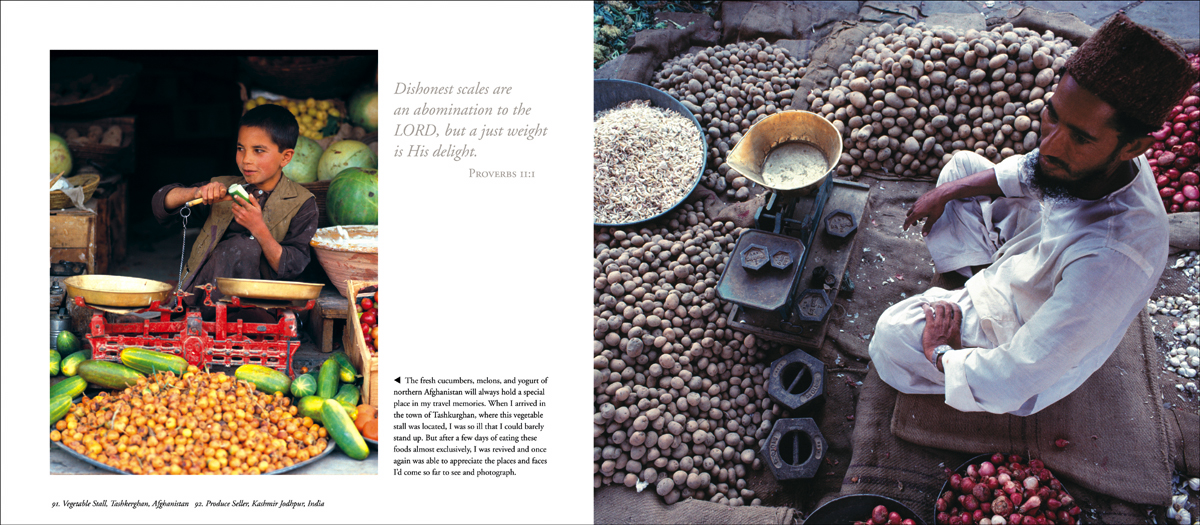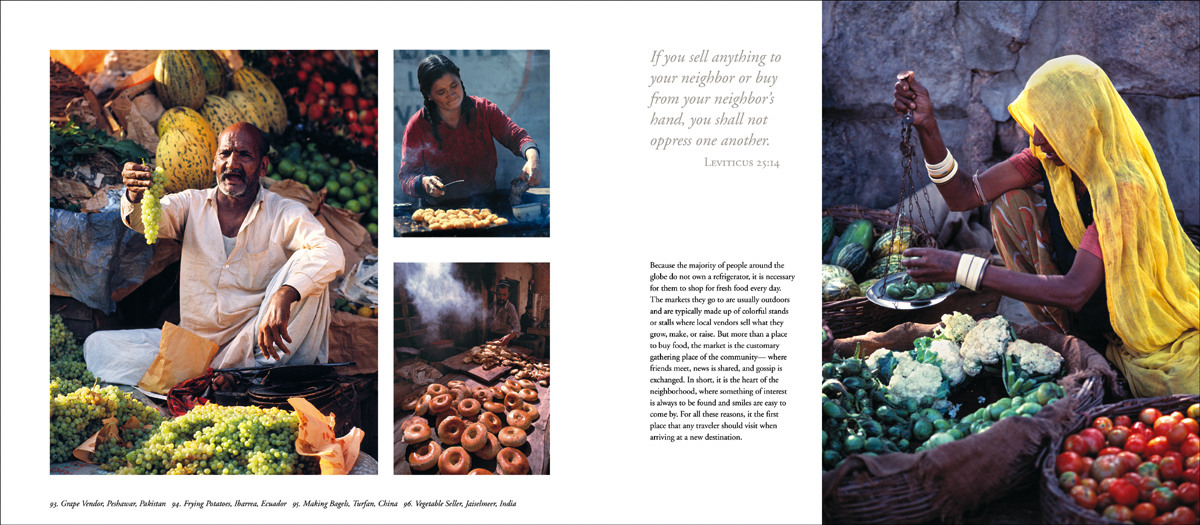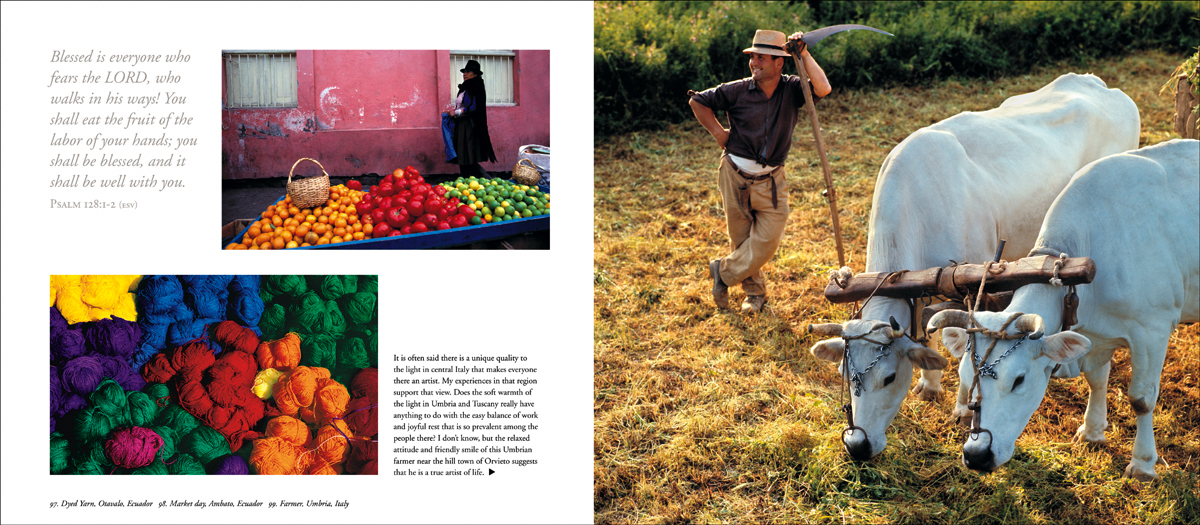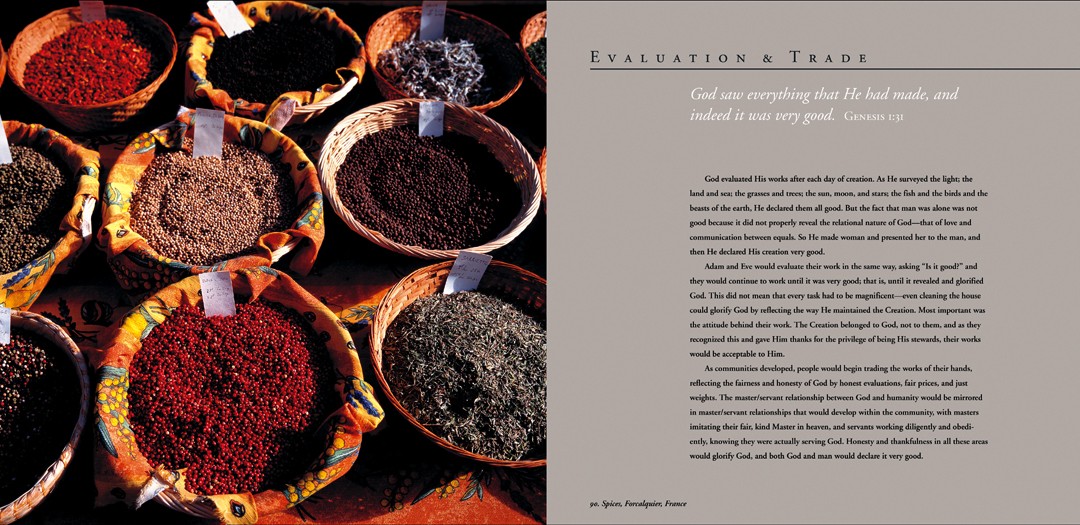Spices, Forcalquier, France
God saw everything that He had made, and indeed it was very good. Genesis 1:31
God evaluated His works after each day of creation. As He surveyed the light; the land and sea; the grasses and trees; the sun, moon, and stars; the fish and the birds and the beasts of the earth, He declared them all good. But the fact that man was alone was not good because it did not properly reveal the relational nature of God—that of love and communication between equals. So He made woman and presented her to the man, and then He declared His creation very good.
Adam and Eve would evaluate their work in the same way, asking “Is it good?” and they would continue to work until it was very good; that is, until it revealed and glorified God. This did not mean that every task had to be magnificent—even cleaning the house could glorify God by reflecting the way He maintained the Creation. Most important was the attitude behind their work. The Creation belonged to God, not to them, and as they recognized this and gave Him thanks for the privilege of being His stewards, their works would be acceptable to Him.
As communities developed, people would begin trading the works of their hands, reflecting the fairness and honesty of God by honest evaluations, fair prices, and just weights. The master–servant relationship between God and humanity would be mirrored in master–servant relationships that would develop within the community, with masters imitating their fair, kind Master in heaven, and servants working diligently and obediently, knowing they were actually serving God. Honesty and thankfulness in all these areas would glorify God, and both God and man would declare it very good.
Dishonest scales are an abomination to the LORD, but a just weight is His delight. Proverbs 11:1
Vegetable Stall, Tashkerghan, Afghanistan — Produce Seller, Jodhpur, India
The fresh cucumbers, melons, and yogurt of northern Afghanistan will always hold a special place in my travel memories. When I arrived in the town of Tashkurghan, where this vegetable stall was located, I was so ill that I could barely stand up. But after a few days of eating these foods almost exclusively, I was revived and once again was able to appreciate the places and faces I’d come so far to see and photograph.
If you sell anything to your neighbor or buy from your neighbor’s hand, you shall not oppress one another. Leviticus 25:14
Grape Vendor, Peshawar, Pakistan — Frying Potatoes, Ibarrea, Ecuador — Making Bagels, Turfan, China — Vegetable Seller, Jaiselmeer, India
Because the majority of people around the globe do not own a refrigerator, it is necessary for them to shop for fresh food every day. The markets they go to are usually outdoors and are typically made up of colorful stands or stalls where local vendors sell what they grow, make, or raise. But more than a place to buy food, the market is the customary gathering place of the community— where friends meet, news is shared, and gossip is exchanged. In short, it is the heart of the neighborhood, where something of interest is always to be found and smiles are easy to come by. For all these reasons, it the first place that any traveler should visit when arriving at a new destination.
Blessed is everyone who fears the LORD, who walks in his ways! You shall eat the fruit of the labor of your hands; you shall be blessed, and it shall be well with you. Psalm 128:1-2 esv
Dyed Yarn, Otavalo, Ecuador — Market day, Ambato, Ecuador — Farmer, Umbria, Italy
It is often said there is a unique quality to the light in central Italy that makes everyone there an artist. My experiences in that region support that view. Does the soft warmth of the light in Umbria and Tuscany really have anything to do with the easy balance of work and joyful rest that is so prevalent among the people there? I don’t know, but the relaxed attitude and friendly smile of this Umbrian farmer near the hill town of Orvieto suggests that he is a true artist of life.

